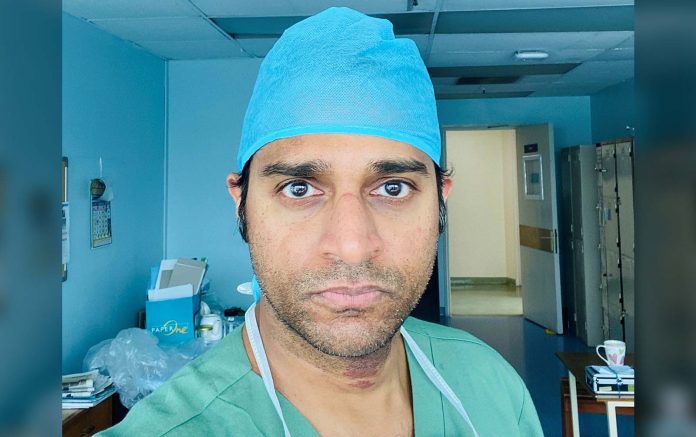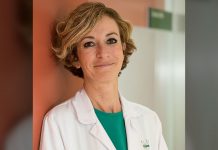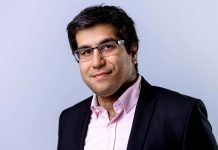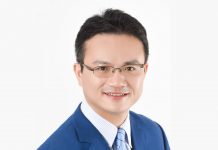Dr. Anand Sachithanandan—Kuala Lumpur
Dr. Anand Sachithanandan is a consultant cardiothoracic surgeon in private practice in greater Kuala Lumpur. He is co-founder and president of Lung Cancer Network Malaysia, an NGO that aims to improve outcomes from lung cancer through awareness, advocacy and education. Offering a comprehensive portrait of the effects of COVID-19 both on his work and daily life in Malaysia, Dr. Anand describes his efforts to mitigate risk to patients and colleagues, preserve kindness and hope, and ultimately continue to provide life-saving cancer treatment in an unprecedented health care landscape.
The ongoing COVID-19 outbreak – unprecedented for modern times – is truly a global health catastrophe that has indiscriminately and tragically claimed many lives, including health care workers worldwide from Wuhan, China to the current epicenters in Italy, Spain and the United States. My home country, Malaysia, has the highest recorded statistics in Southeast Asia with 3116 confirmed cases and 50 deaths respectively (as of April 2). Our government introduced a phased, month-long nationwide social distancing movement-controlled order (MCO) (in effect since March 18) to help flatten the epidemic curve and attenuate any possible spike in cases that would overwhelm our intensive care facilities. People here are only allowed to leave their homes between 8am and 8pm strictly for the purchase of food items or to seek health care. This MCO is, in effect, a “mitigation lockdown” of sorts with hospitals and health care services being one of the few essential services exempted.
On a personal level, as a cardiothoracic surgeon with a special interest in lung cancer work, my daily working life is somewhat different. Police checkpoints and military roadblocks (to enforce the MCO) are now the “new normal” on my daily drive to work. Like most of my surgical colleagues, I have consolidated and reduced my outpatient clinic consultations to a minimum. While we have the IT capability for remote tele-consultations, unfortunately existing archaic legislation here prohibits this contemporary practice. Admittedly, phone or video consults may also not be suitable for some older patients or for review of early post-operative cases. Most of my surgical colleagues have sensibly deferred all non-urgent elective surgery to minimize hospital-acquired transmission, protect our clinical staff and conserve precious blood products made scarce due to reduced public donations as a consequence of the MCO restrictions.
Lung cancer is the leading cancer-killer here in Malaysia. Surgery for early stage resectable disease should not be delayed and in truth no one knows precisely how long this viral outbreak will persist, and thus, the duration of our restrictive MCO. Hence, I still proceed with curative lung resection surgery as indicated. A pre-operative COVID-19 (nasopharyngeal swab RT-PCR) test is mandatory for all our pre-operative cases, and we proceed accordingly with the necessary available protective equipment. The fact is even the best available tests have a limited sensitivity of about 70% (so 30% are falsely negative). Perhaps a CT thorax scan would be useful when clinical suspicion remains high.
In the operation theatre (OT) my surgical scrub team and the anaesthetist all wear fresh N95 respirator masks for each case. I have temporarily changed my practice and abandoned a pre-intubation surveillance bronchoscopy. I also ask my surgical scrub team to remain outside the OT during airway intubation to minimise their risk of viral aerosolisation. Unlike concerns with laparoscopic abdominal surgery that utilizes CO2 insufflation, to the best of my knowledge there is no elevated risk with thoracoscopic VATS surgery hence my surgical approach remains the same based on clinical evaluation.
During the operation we turn off the positive pressure ventilation system in the OT and post-operatively I try to send any patient requiring intensive care monitoring to a negative pressure isolation room on the ICU. Finally, we aim to minimize the post-operative hospitalization stay especially now amidst this viral outbreak. A recent study from Wuhan (published in JAMA Oncology) suggests cancer patients were more than twice as likely to contract coronavirus as the general community. This risk was highest for lung cancer patients, those over 60 years of age and for prolonged or repeated hospitalization. Thus I discharge home early the occasional patient who is otherwise well, but for a small residual air leak or persistent pleural drainage (usually from systematic lymph node dissection) with a unidirectional pneumostat portable drain.
Emotionally this is a trying time for all of us. Daily news updates of more deaths worldwide including that of selfless frontline healthcare workers is most distressing. Patients and their caregivers, our peers and clinical staff, and our own families are all understandably anxious and tentative but as clinicians we must reassure and preserve with our cancer work. Recently several of my surgical colleagues and I have pledged to perform pro bono, surgeries for less affluent or uninsured cancer patients from the local public sector government hospitals that have well exceeded their capacity due to the Covid-19 outbreak. I believe gratitude, kindness, hope and courage are the vital ingredients we will all require to successfully navigate this difficult time. This ongoing restrictive but necessary MCO here in Malaysia has greatly disrupted the working life, schooling and business livelihoods of millions of Malaysians, hence I feel privileged to be able to continue my lung cancer work as a thoracic surgeon and am truly grateful to all the clinical and non-clinical support services and uncelebrated hospital staff who help facilitate this.
Dr Anand Sachithanandan is a consultant cardiothoracic surgeon in private practice in greater Kuala Lumpur. He is co-founder & president of Lung Cancer Network Malaysia, an NGO that aims to improve outcomes from lung cancer through awareness, advocacy and education.











